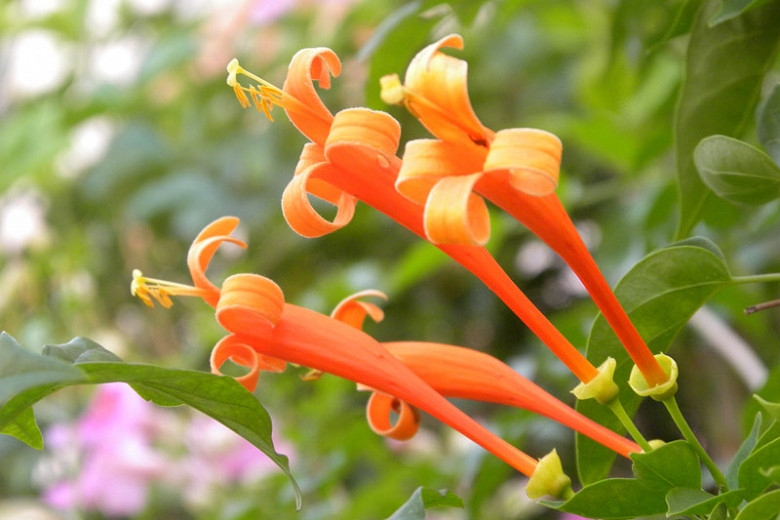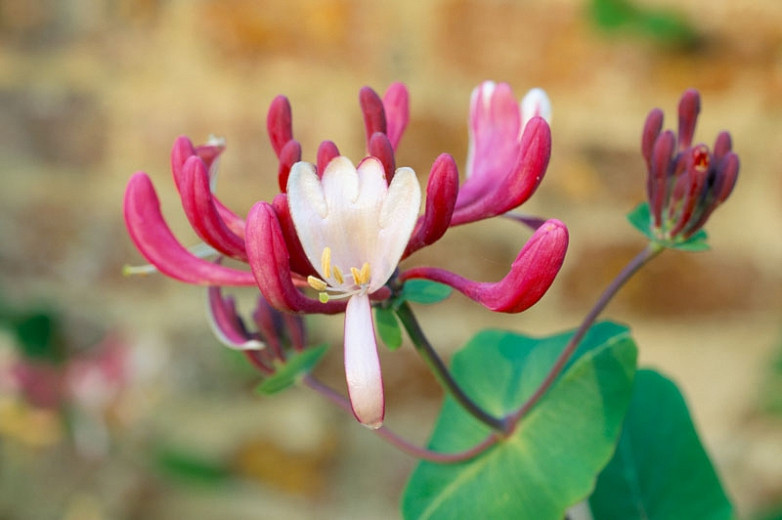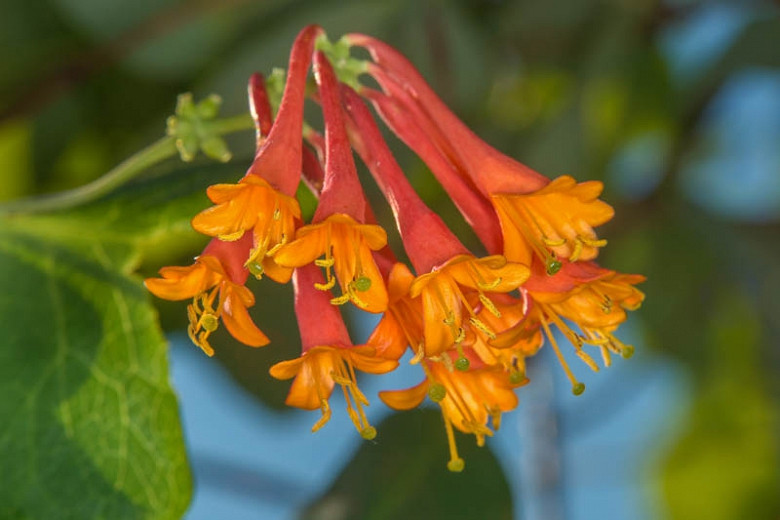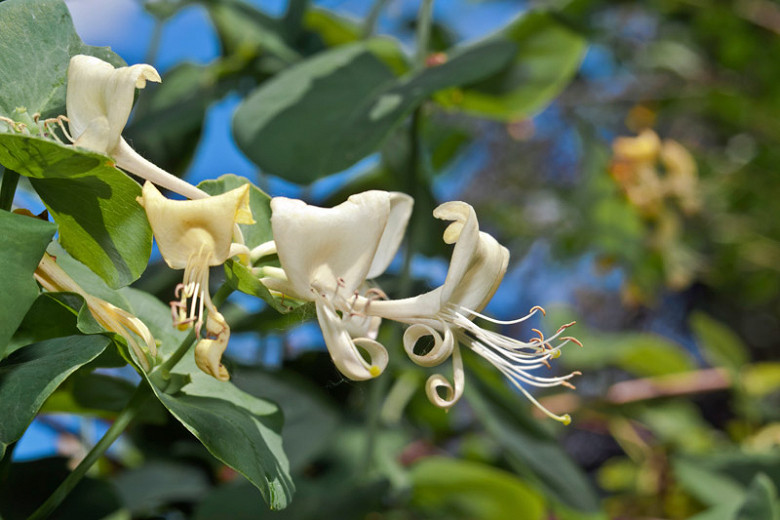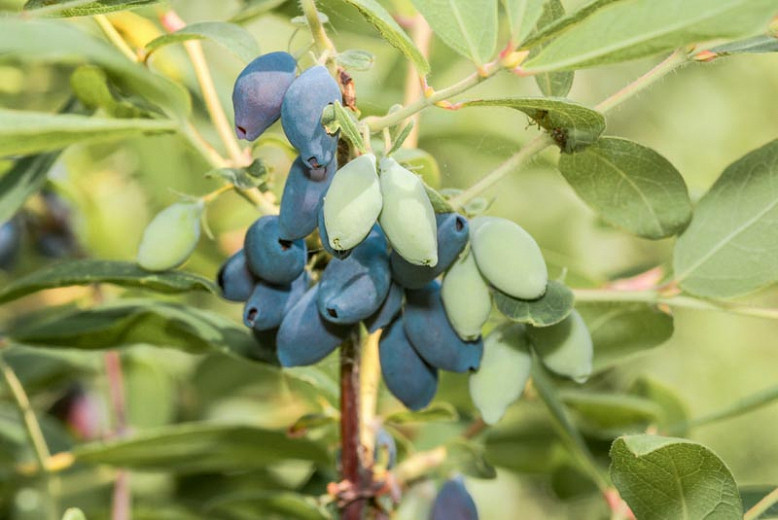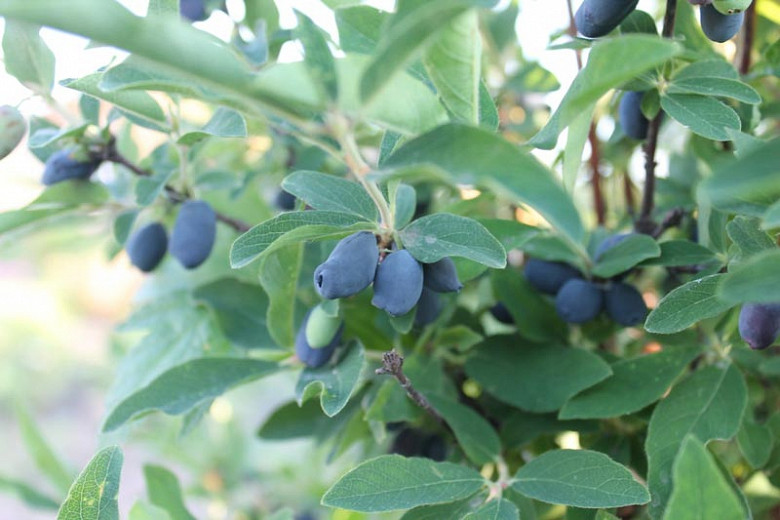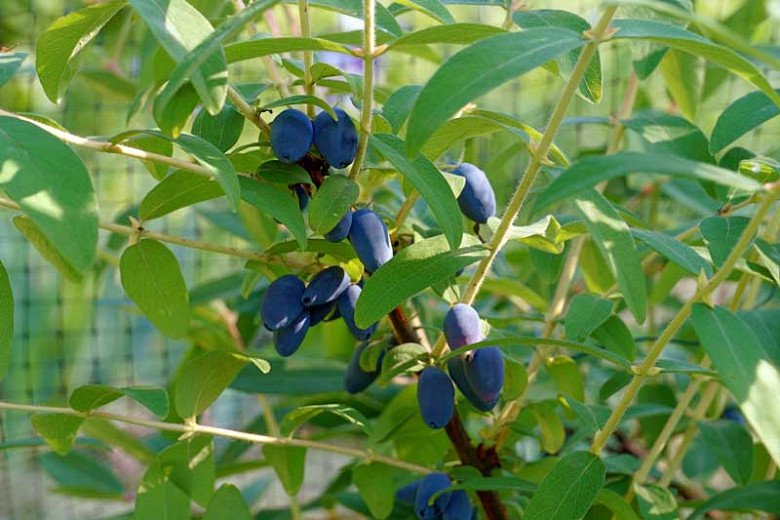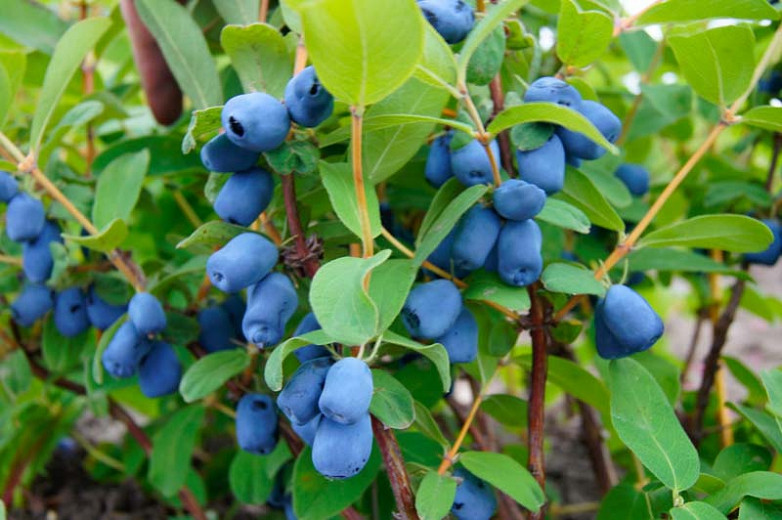Lonicera ciliosa (Orange Honeysuckle)
Lonicera ciliosa (Orange Honeysuckle) is a large, twining deciduous climber with masses of orange tubular flowers, up to 1.5 in. long (4 cm), that flare to 5 lobes at the end. Borne in dense terminal clusters just above a large round leaf, they are produced in succession from late spring to mid-summer. They eventually give way to translucent, orange-red berries. The fruits are edible either raw or cooked. Magnets for hummingbirds, bees, and butterflies, the cheerful blossoms contrast nicely with the mostly smooth foliage of elliptic to ovate, dark green leaves. The terminal pair of leaves are fused to form a disk. Although not fragrant, this vigorous honeysuckle is still a lovely landscape plant. It can run freely on the ground or clambers up trees. It needs support and may need a little training to grow on a trellis, arbor, or along other garden structures.
- Grows up to 10-20 ft. tall (300-600 cm) and 20-30 ft. wide (600-900 cm).
- A partial shade lover, this plant is best grown in fertile, humus-rich, well-drained soils. Tolerates full sun. Drought tolerant once established.
- Excellent choice for hummingbird gardens, butterfly gardens, or covering walls, fences, trellises, and pergolas.
- Low maintenance, this plant is generally pest and disease free. Keep an eye out for aphids, thrips, and powdery mildew.
- Prune after flowering.
- Propagate by hardwood cuttings outdoors or young summer shoots placed over bottom heat. Seeds germinate well if treated or fall sown. Cold-moist stratification is necessary.
- Native to Western North America.
Requirements
| Hardiness | 5 – 9 |
|---|---|
| Climate Zones | 1, 1A, 1B, 4, 5, 6, 7, 15, 16, 17 |
| Plant Type | Climbers |
| Plant Family | Lonicera – Honeysuckles |
| Exposure | Full Sun, Partial Sun |
| Season of Interest | Spring (Late)Summer (Early,Mid) |
| Height | 10' – 20' (3m – 6m) |
| Spread | 20' – 30' (6m – 9m) |
| Water Needs | Average |
| Maintenance | Low |
| Soil Type | Chalk, Clay, Loam, Sand |
| Soil pH | Acid, Alkaline, Neutral |
| Soil Drainage | Moist but Well-Drained |
| Characteristics | Showy, Fruit & Berries |
| Native Plants | United States, California, Pacific Northwest, Idaho, Oregon, Washington, Rocky Mountains, Montana, Utah, Southwest, Arizona |
| Tolerance | Drought |
| Attracts | Bees, Birds, Butterflies, Hummingbirds |
| Garden Uses | Arbors, Pergolas, Trellises, Wall-Side Borders, Walls and Fences |
| Garden Styles | Informal and Cottage |
